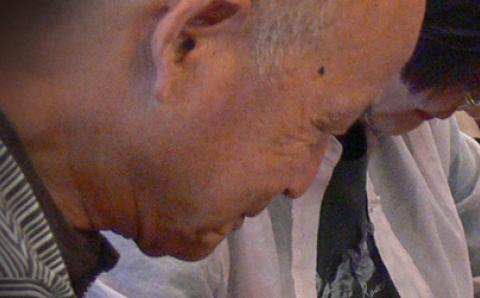I tend to feel guilty after church.
It’s not the sermon but the coffee fellowship after the service that makes me feel uncomfortable. I usually wait on the edge of the group and try to talk to one person. If that doesn’t work out, I retreat to the church library, where I’m sure to run into someone I know well or find the company of a good book. And then I feel guilty for not being more gregarious. Shouldn’t it be easier for me to elbow my way into the crowd at my church and join the conversation?
According to Susan Cain’s recent book Quiet: The Power of Introverts in a World That Can’t Stop Talking, I shouldn’t feel so guilty. In fact, I probably represent the feelings of 30 to 50 percent of the population. Psychologists call us introverts.
Cain describes introversion as a “preference for environments that are not overstimulating.” By contrast, an extrovert loves being in a group and finds energy in constant activity. At work, introverts tend to be slow and steady; extroverts multitask while multitasking. It is true that introverts can be shy. But they don’t dislike people. Introverts prefer calm settings, a conversation with a few people, and time to reflect before speaking.
Our modern economy and individualistic culture, says Cain, have favored the Extrovert Ideal, a personality type based on the model salesman who looks you in the eye and speaks with warm confidence about a new product. That ideal in turn causes us to view the ideal leader as a charismatic person blessed with the ability to decide quickly and communicate effectively.
By contrast, introverts have accomplished some of the most creative work alone, collaborating only when they had results to share. Consider Steve Wozniak, who worked at Hewlett-Packard and was part of a computer club but invented the original Apple computer on his own. Cain also notes that quiet and calm introverts such as Rosa Parks and Gandhi developed courageous consciences that refused to budge. Reading Cain’s book, I’m surprised anyone would want to be an extrovert.
Cain also presents the conversation she had with Adam McHugh, a pastor who’s written extensively on introversion in the church. Says McHugh, “The evangelical culture ties together faithfulness with extroversion. The emphasis is on community, on participation in more and more programs and events, on meeting more and more people.” As a result, many introverted evangelicals—and pastors—feel a sense of shame and spiritual failure if they are not as involved, engaged, or vocal as other church members.
Thanks to its focus on doctrinal knowledge, calmly ordered worship, and behind-the-scenes committee work, the Reformed tradition has been good for introverts. But as worship styles change, are the introverts among us feeling less at home or even leaving the church? And wouldn’t Reformed extroverts argue that the church still has a long way to go?
I began to wonder how I could become more involved in church life. What might help introverts and extroverts worship and serve together in the church? Here are some ideas.
1. Get Over It
Dear fellow introvert, when your stomach rolls at the thought of participating in, say, a church retreat, ask yourself whether it’s because of anxiety (fear of public speaking? of “over-sharing”?) or because you judge the time would be better spent alone. You may be using your introversion as an easy excuse for non-participation in the church. The church retreat may not be your thing, but what is?
Cain’s advice is helpful in this context: “Figure out what you are meant to contribute to the world and make sure you contribute it. If this requires public speaking or networking or other activities that make you uncomfortable, do them anyway.” So pick something at church to be involved in, remember that the cause is more important than your hesitation, and trust in the Spirit’s guidance.
2. Introverted Pastors
Ever heard a pastor who seems to preach to your very soul on the topic of Christian community, but when you stop to chat with her right after the service, she seems distant and removed? Why can’t she practice what she just preached? Realize that your pastor is probably an introvert, and that the sermon required an exhausting amount of reflection and concentration. Respect that effort with some space and time: send a card, an email, or an invitation to share a coffee.
All you extroverts: realize that many introverts are very good at speaking, preaching, teaching and writing—areas where the setting is, to quote McHugh, “controlled.” Once that setting is gone, the charismatic speaker or confident writer may seem embarrassingly awkward.
3. Mentoring
What do the words “youth group activity” make you think of? A service trip, invited speakers, group discussions or special outings? Consider that youth group may not be for every young person. Cain cautions parents against forcing introverted children to “come out of their shells” by requiring a group activity. It’s better to let quiet kids be and instead to encourage their passions, which will do a better job of giving them confidence in a large group. The same advice applies to mentoring youth group activities: mix large-scale events with small group discussions.
4. “Ambivert” Worship
I’m not a great fan of shaking hands across the pews at the beginning of a service or acting out motions for children’s songs. My personal version of liturgical dance is limited to standing up and sitting down. I’m glad, however, when a service pushes me out of my introvert’s worship comfort zone. In the same way, planners who favor high-energy worship exclusively should consider whether they are following the Extrovert Ideal. If so, include time for contemplation, reflection, and liturgical prayers, or blend contemporary praise songs with traditional hymns.
5. Conflict Resolution
When church members disagree, how much of the disagreement can be linked to clashing personalities rather than to conflict over theology or mission? Imagine a meeting where the extroverts speak loudly while their introvert counterparts say nothing. The introverts then go home and send off a memo about the extroverts’ bossy behavior. The extroverts promptly complain that the introverts didn’t say anything at the meeting. Both parties are miffed and refuse to compromise.
In other words, extroverts need to listen, and introverts need to speak up.
Whether you’re an introvert or an extrovert or have never even considered those categories, we probably can all agree with Susan Cain’s suggestion that we need to “find a balance between action and reflection.”
Such a balance is not easy. Think of Moses, who had to encounter a burning bush to get some fire in his robes. Or Peter, who had to be told three times to think before he spoke. Or Jesus, who preached to huge crowds (what an extrovert!) and also left his disciples to spend forty days in the desert (what an introvert!).
So, introverts, venture boldly into that after-church coffee-drinking crowd. And extroverts, make your way to the church library now and then.
For More Reading
Susan Cain, Quiet: The Power of Introverts in a World that Can’t Stop Talking, Crown, 2012.
Adam McHugh, Introverts in the Church: Finding our Place in an Extroverted Culture, IVP, 2009.
Study Questions
- Are you an introvert or an extrovert? How do you know? Is it necessary to make this kind of distinction?
- If you are an introvert, what are your social struggles? What idea or sentence in this article gives you some insight into your personality?
- If you are an extrovert, what idea or sentence in this article helps you understand people who “have a preference for environments that are not overstimulating”?
- What are you meant to contribute to the world? Have you found a way to live this out within your personality type?
- How can a church that focuses on extroversion minister to introverts—especially youths? What do we need to keep in mind for the programs we create?
- How can your church encourage extroverts to listen and introverts to speak up?
About the Author
Otto Selles teaches French at Calvin College, Grand Rapids, Mich., and attends Neland Avenue Christian Reformed Church in Grand Rapids.








